Marrakech or the red city is a well known city around the world. It is known for its rich history and culture, tourist attractions, ancient walls and landmarks, resorts, and markets (Souks).
Everything in Marrakech is unique, interesting, and exciting. As a first time visitor, you may feel confused at first due the unique atmosphere and environment in Marrakech. That is why in this post, I will talk about things that you should know before visiting Marrakech including tourist activities and the most prominent attractions.

The spring and autumn seasons are the best times to travel to Marrakech, and with its warm days, busy nights and abundant fragrances, Marrakech is a fascinating city for even the most discerning traveller.
While many people may associate this thousand-year-old Moroccan city with labyrinthine alleyways and snake charmers, Marrakech is actually equal parts ancient and modern. So, lets gets started and see what Marrakech has to offer to us.
Jamaa El-Fna

The legendary Jamaa El Fna square is probably the most famous tourist attraction in Marrakech, and it is located near an other great attraction which is the Koutoubia Mosque.
Jamaa El Fna Square is the buzzing heart of the charming city of Marrakech, as the vibrant square is bustling with life and movement throughout the day, making it an amazing destination worth discovering. The square is filled with snake charmers, henna tattoo artists, storytellers ,snail vendors, soothsayers, acrobats and conjurers, musicians and slapstick acting troupes … At night, the square turns into a huge restaurant to at eat in open air. Jamaa El-Fna square is also in the UNESCO list of world heritage sites.
Majorelle Garden
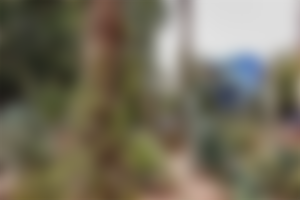
This unique botanical garden was built and found by in the 1920s by the French painter “Jacques Majorelle”. Certainly, it is one of the most beautiful places to visit in Marrakech, as this quiet destination provides an ideal place to rest and relax from the hustle and bustle of the city. Also, The garden features the Islamic Art Museum of Marrakech,and a small museum that houses various Islamic art work.
The garden will tempt you to turn on your camera and start taking pictures of the 300 types of sub-tropical plants. The Majorelle Garden is relatively large and includes a vast selection of plants and flowers. These are divided into different areas of palm trees, cacti, garden plants, and aquatic plants.
The Koutoubia Mosque
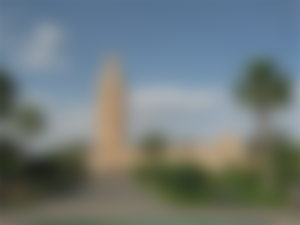
The Koutoubia Mosque is one of the most important places to visit in Marrakech, as it features a wonderful design and architecture. It is the largest mosque in Marrakech, and one of the oldest mosques in the country. What further exudes the Koutoubia Mosque is its magnificent minaret, which dominates the city skyline in a magnificent sight, attracting eyes from long distances.
The mosque is located in the southwest medina district of Marrakech. It is decorated with curved windows, a ceramic strip, pointed merlons and decorative arches; it has a large square with gardens, and is lit at night. The minaret includes an arrow and orbs. It was completed during the reign of the Berber Almohad Caliph Yaqub al-Mansour (1184–1199), and inspired other buildings such as the Giralda in Seville and the Hassan Tower in Rabat.
Ben Youssef School

One of the largest Islamic schools in North Africa, Ben Youssef dates back to the sixteenth century, but excellently preserved to date. It can also be considered one of the most beautiful schools in the world due to its wonderful design, architecture, and its rich history.
The school was for more than four centuries a home for students in search of knowledge in various sciences, including theology. It had 132 rooms for non-Marrakesh students and could accommodate up to 900 students.
There, visitors can explore over 100 student rooms and enjoy the stunning architecture from the large patio to the decorated prayer halls. After nearly six centuries, this masterful school stands as one of the main tourist attractions in the city of Marrakech.
Lighthouse Gardens | Menara Gardens
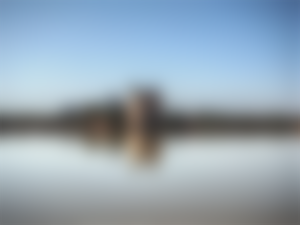
The creation of the Menara Gardens dates back to the 12th century, during the reign of the Almohad dynasty, at the request of King Abdelmoumen Almohade to serve as a training ground for soldiers to bathe and create a place conducive to life residents as orchards for agriculture.
The most beautiful part of this green-space is the lake, which is presided by a pavilion, also renovated by the sultan Abderrahmane of Morocco and the thousands of olive trees surrounding the area.
The Menara Park offers the typical and classic form of Moroccan royal gardens, similar to those of the Agdal gardens of Marrakech, the Souani cistern of Meknes, and Jnane El Sabil in Fez. It is very similar to the gardens of Andalusia, especially Granada and Cordoba.
Bahia Palace

Bahia Palace is considered one of the grand palaces of the Moroccan city of Marrakech. Built by Minister Ahmed bin Musa, in the 19th century, to commemorate the name of his wife, “Bahia”, and today it is an artistic masterpiece dating from the splendor of Moroccan architecture of Andalusian character which overflows with its civilizational manifestations.
This sprawling palace is set over two acres in the middle of the Marrakech medina and features 150 rooms, including a harem section located just off the sun-filled Court of Honour. Having housed the Resident General during the French Protectorate era, today the Bahia Palace is a must-see historical museum open to the public daily and has previously hosted events such as the Marrakech Biennale.
The Medina
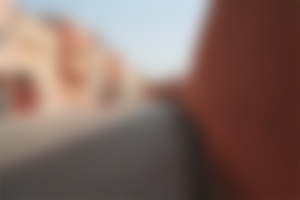
The Medina refers to the ancient and historic city of Marrakech. Founded in 1070–1072 by the Almoravids (1056–1147), capital of the Almohads (1147–1269), Marrakech was for a long time a major political, economic and cultural center of the Muslim West, reigning over North Africa and Andalusia. Magnificent monuments date back to this period are: the Koutoubia mosque, the Kasbah, the ramparts, the monumental doors, and the gardens.
Later, the city will welcome other wonders, such as the Badia palace, the Ben Youssef school, the Saadian tombs, the Bahia palace, and large mansions. and Jamaa El Fna square. The Medina of Marrakech enjoys all its initial components, both cultural and natural, which give it exceptional universal value.
Souks in the Medina
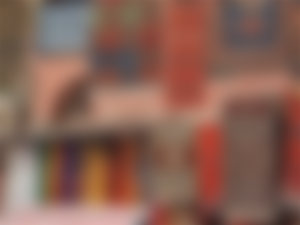
Think of the medina’s souks as a shopping mall, but laid out according to a labyrinthine medieval-era plan. Whether you want to spice up your pantry with North African flavours or buy a carpet to add Moroccan-wow to your house, this magpie’s nest of treasures is manna for shop-til-you-drop fanatics.
The main market streets are Souk Semmarine and Souk El Kebir. If you see something you really like there, fine — but understand prices will be higher. Smaller souks and souks dedicated to artisan workshops such as Souk Haddadine (Blacksmith’s Souk), where you can buy direct from the producer, generally have the best deals.
Museum of Marrakech
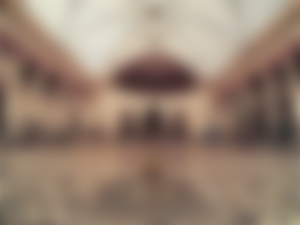
The Marrakech Museum is housed in a wonderful historical building worth visiting called Dar Menebhi Palace, which used to be a royal palace. The palace dates back to the end of the nineteenth century, and is a great example of classical Andalusian architecture.
The lavish Andalusian-style inner courtyard is a highlight, with carved cedar wood, colourful tiles, stained-glass windows, ornamental pillars, a large chandelier, and painted doorways. Visitors can also see the less opulent hammam and kitchen. An array of artwork and artefacts can be found in the various rooms, with pieces from the present time as well as the past. Collections include pottery, calligraphy, old gravestones, coins, paintings, clothing, and historic documents.
The museum covers archaeology, ethnography, history, and art. Admission is 50 Moroccan dirhams (US$5).
Thank you for reading.


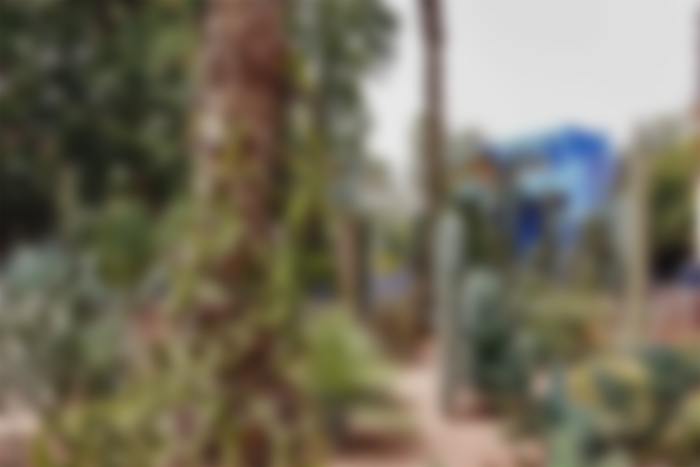
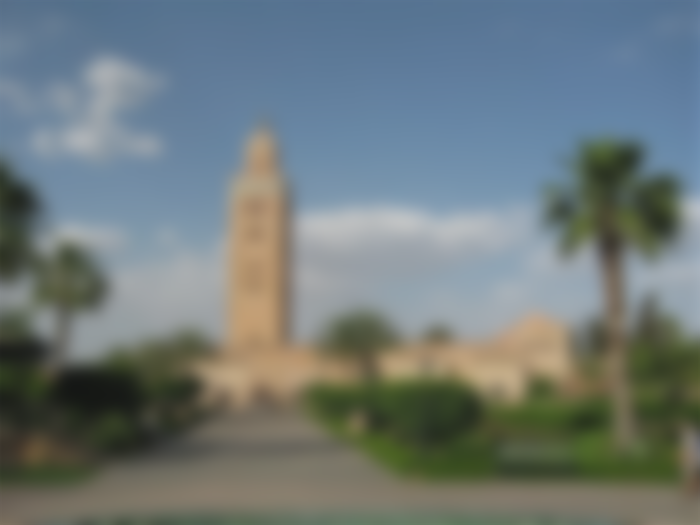
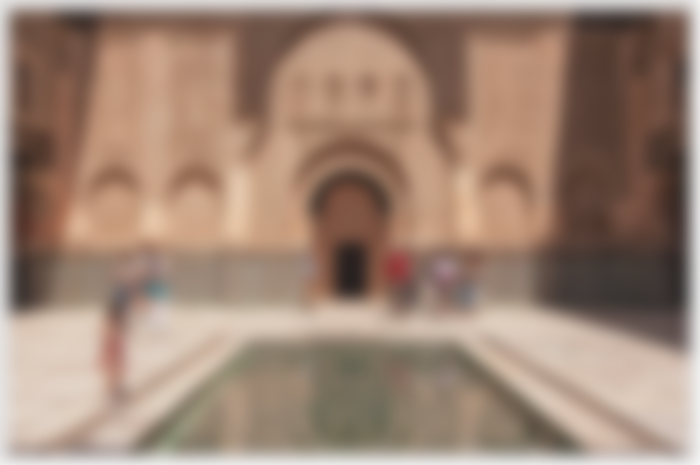
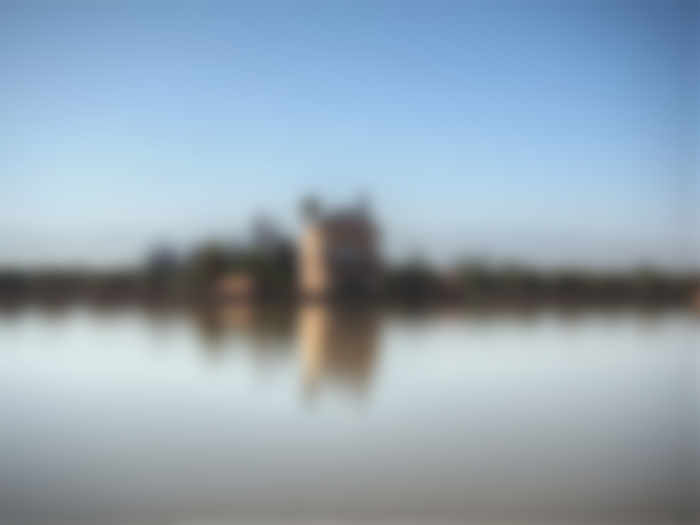

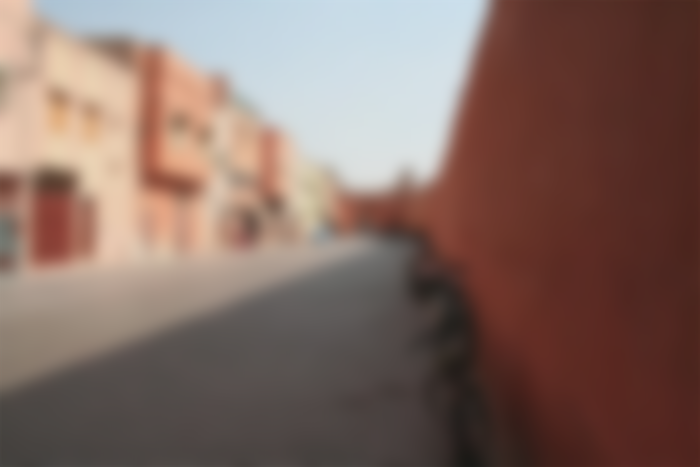
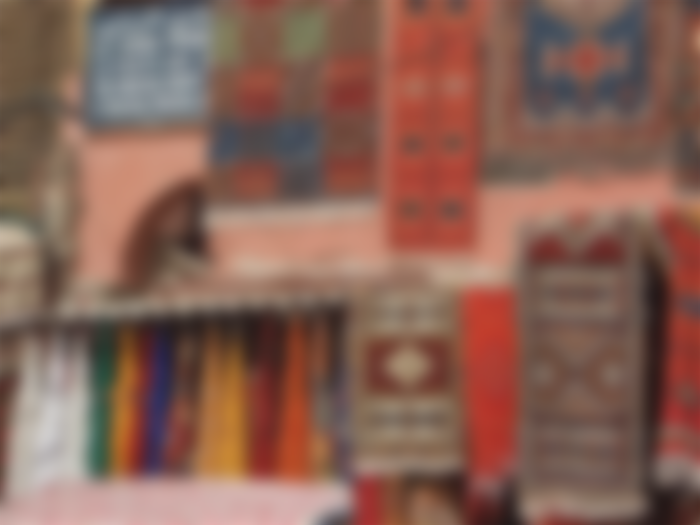
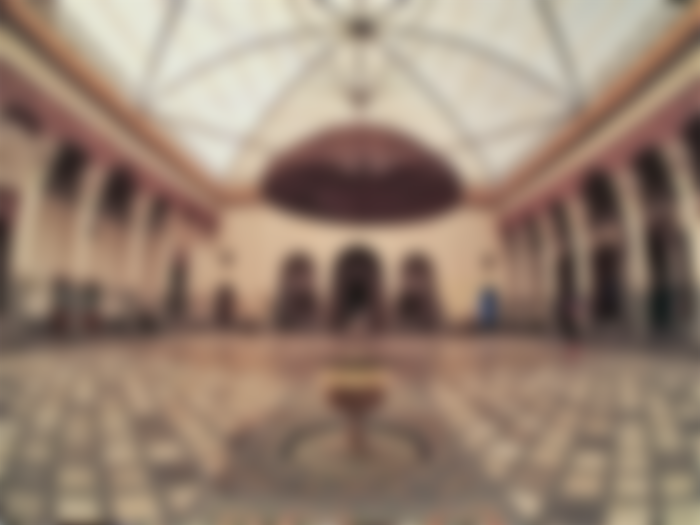
I want to visit Morocco. Here is an interesting factoid- the Sultanate of Morocco was the first country to recognize the United States as a nation!